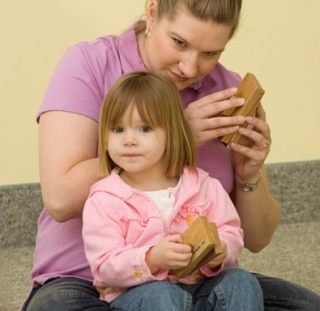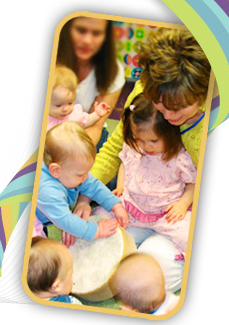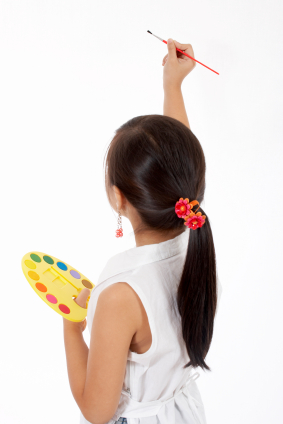 Music is a magic little key to your child’s heart and mind. It’s a dynamic sensory experience that evokes a powerful response in children. Early exposure to music is a vehicle for profound learning.
Music is a magic little key to your child’s heart and mind. It’s a dynamic sensory experience that evokes a powerful response in children. Early exposure to music is a vehicle for profound learning.
We’ve found that music and movement that involves interaction, demonstration, and exploration is the perfect way to introduce a child to the learning environment. That’s why Kindermusik provides a unique opportunity to begin your child’s preparation for school – and, for that matter, for life.
Our program is carefully structured and developmentally appropriate. That means the music and activities reflect the age of your child. The Kindermusik classroom is set up in a manner that is most similar to what your child will experience in preschool and/or kindergarten.
This can give your child a great head start.
That said, don’t confuse Kindermusik with the potentially stressful environment you might find in a “toddler prep school”. Our program is not design to push children. In fact, quite the opposite. Instead you’ll find that our curricula nurtures and mirrors your child’s development with a fun, engaging, and stimulating environment. We encourage all children to learn and participate at their own pace. You’ll hear our Kindermusik educators say this all the time.
We know that these days parents have dozens of activities to choose for their children. Our goal is to stand out above the rest as the best option for you and your child. We feel that our research-based, research-proven program will not only prepare your child for school and the future, but you’ll get to have a lot of fun along the way!
Want to preview a Kindermusik class for free? Fill out this online form and an educator near you will contact you with more information. We hope to see you in Kindermusik soon!







 I believe that music, as the only activity that simultaneously stimulates every area of the brain, is the best choice for my children through first grade. But what after they were done with Kindermusik?
I believe that music, as the only activity that simultaneously stimulates every area of the brain, is the best choice for my children through first grade. But what after they were done with Kindermusik?